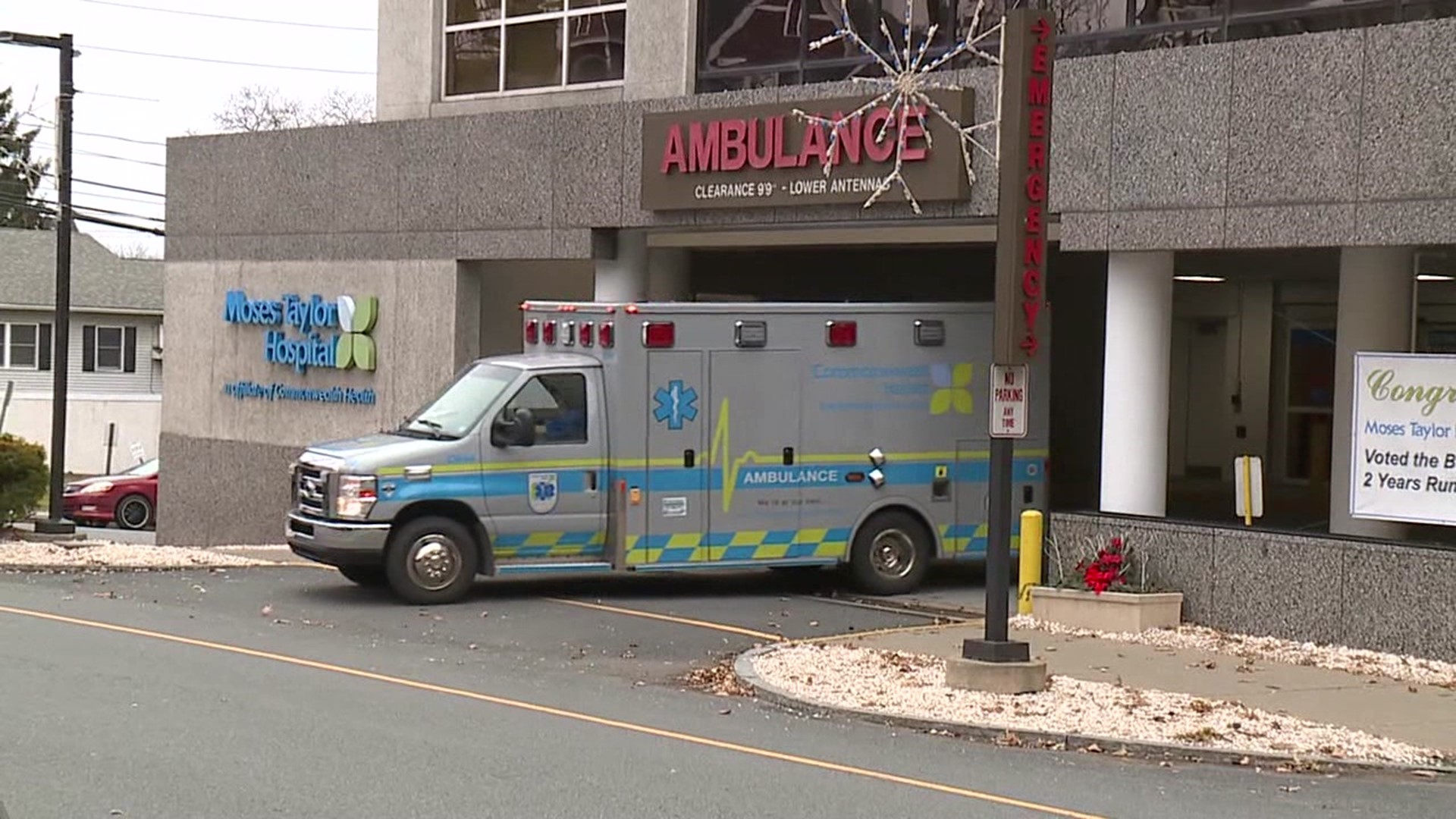SCRANTON, Pa. — The emergency medical technicians with Pennsylvania Ambulance in Scranton say the majority of the calls they go on these days have to do with COVID.
But lately, they've been tied up on calls where the people who call are asking for COVID-19 testing.
That's a service that ambulances don't provide.
"If you have severe symptoms like shortness of breath, chest pain, even stroke-like symptoms, we want you to call the ambulance, we encourage you to call the ambulance—but not for your basic cold and flu symptoms, which is a great amount of the calls we're going for," said Bruce Beauvais of Pennsylvania Ambulance.
Beauvais told Newswatch 16 that the increase in calls has contributed to busy emergency rooms. Wait times are often a few hours long.
"When our wait times are increased in the emergency department, that means that ambulance is not available for the community to respond to our calls. That means we can't be there for the chest pain, shortness of breath, strokes, major traumas. So, that is probably the biggest issue we're dealing with today," Beauvais added.
It's an issue seen industry-wide.
"Currently, what we're seeing is that we have numbers in the hospital that have exceeded our maximum numbers a year ago," said Dr. Jeffrey Jahre.
Dr. Jahre is senior vice president of medical and academic affairs for St. Luke's University Health Network. He is advising patients to limit when they go to the hospital and when they get a coronavirus test.
Dr. Jahre is telling patients with symptoms to opt for an at-home test. In symptomatic patients, they are accurate, and then a PCR test is not necessary.
People who are vaccinated, boosted, and at low risk for severe illness may not need a test at all.
Lastly, all patients should avoid emergency rooms and urgent care centers to get a COVID-19 test.
Dr. Jahre said that if you think you have COVID or have been exposed, the best first move is to call your primary care doctor.
"They can do a quick screening, and they know your medical history," he said.
These things could ease the burden on health care workers during a time we all hope ends sooner than later.
Watch more stories about the coronavirus pandemic on WNEP’s YouTube page.

